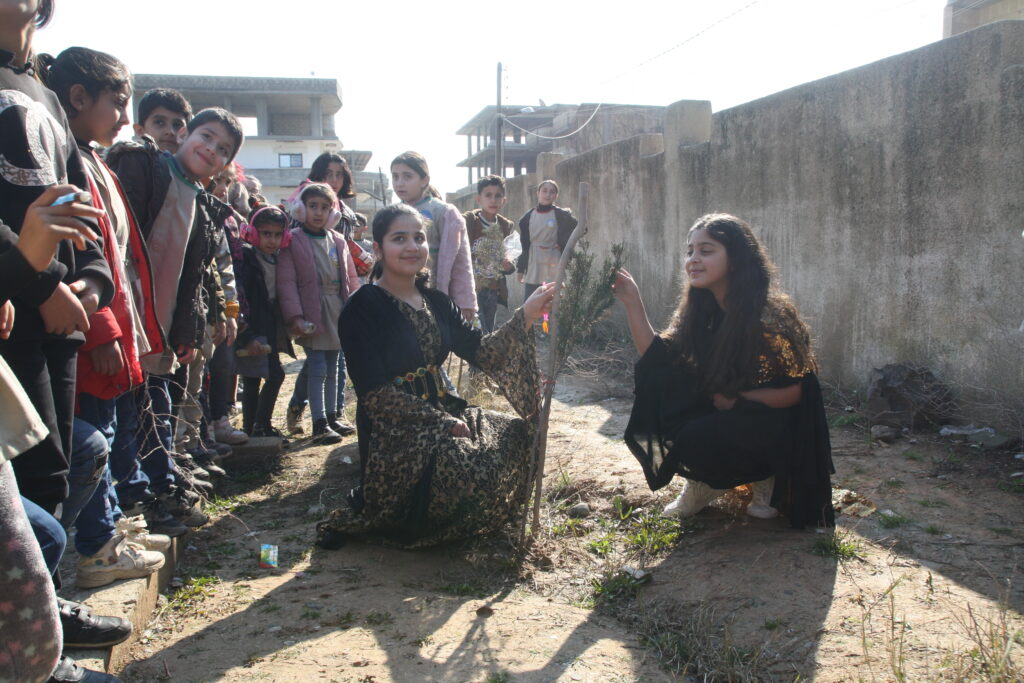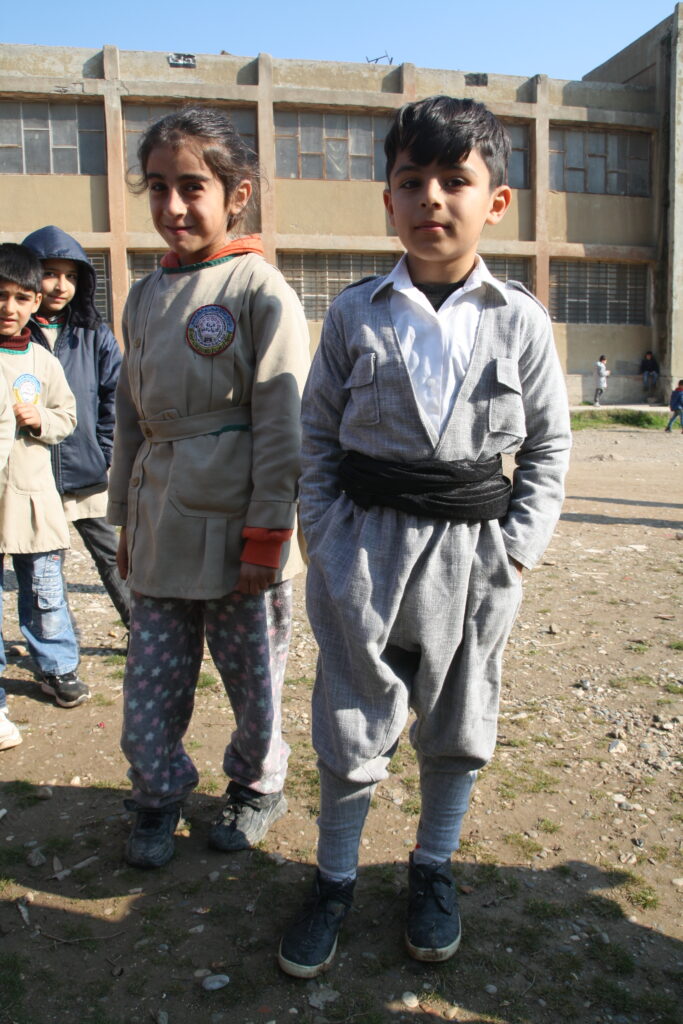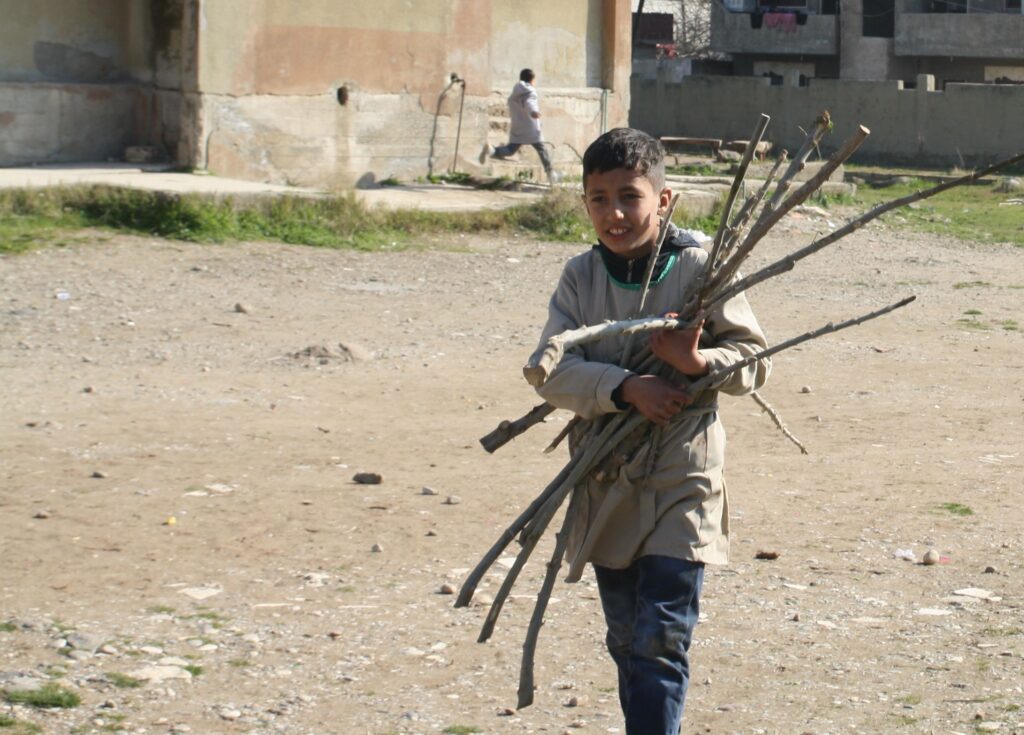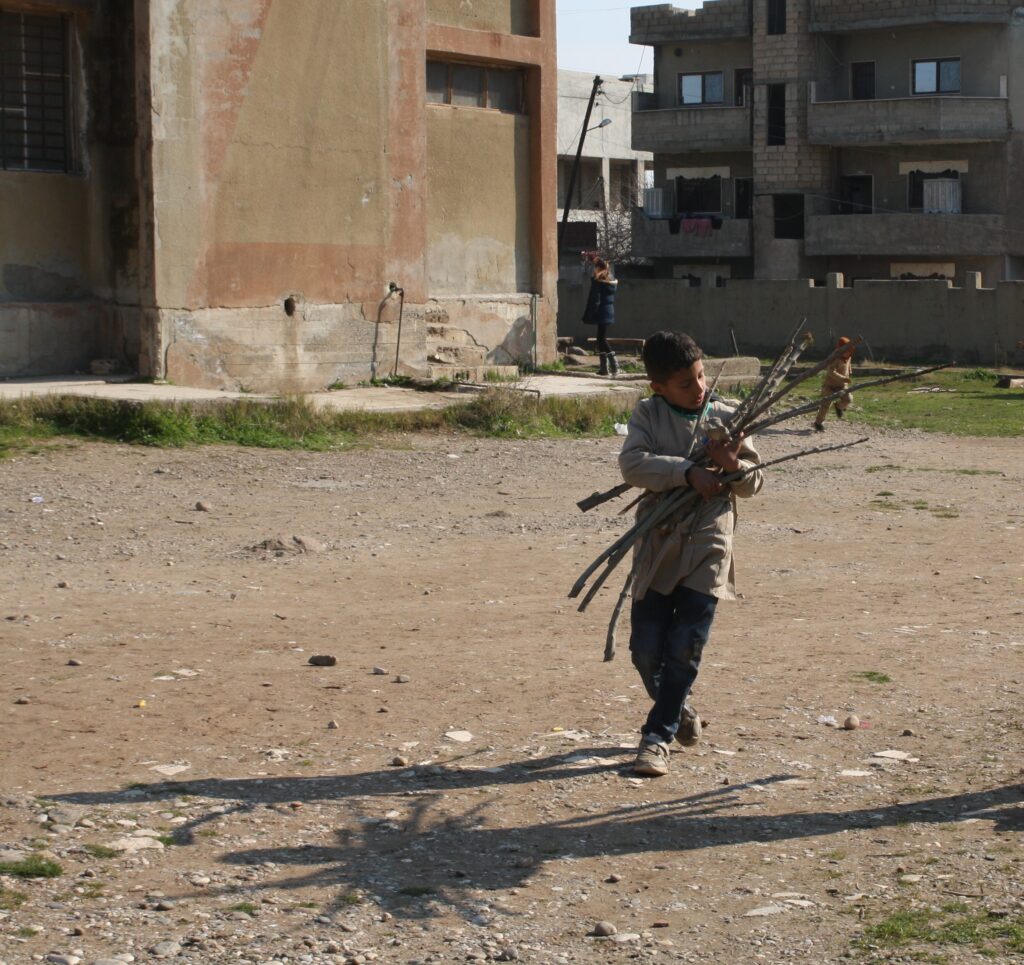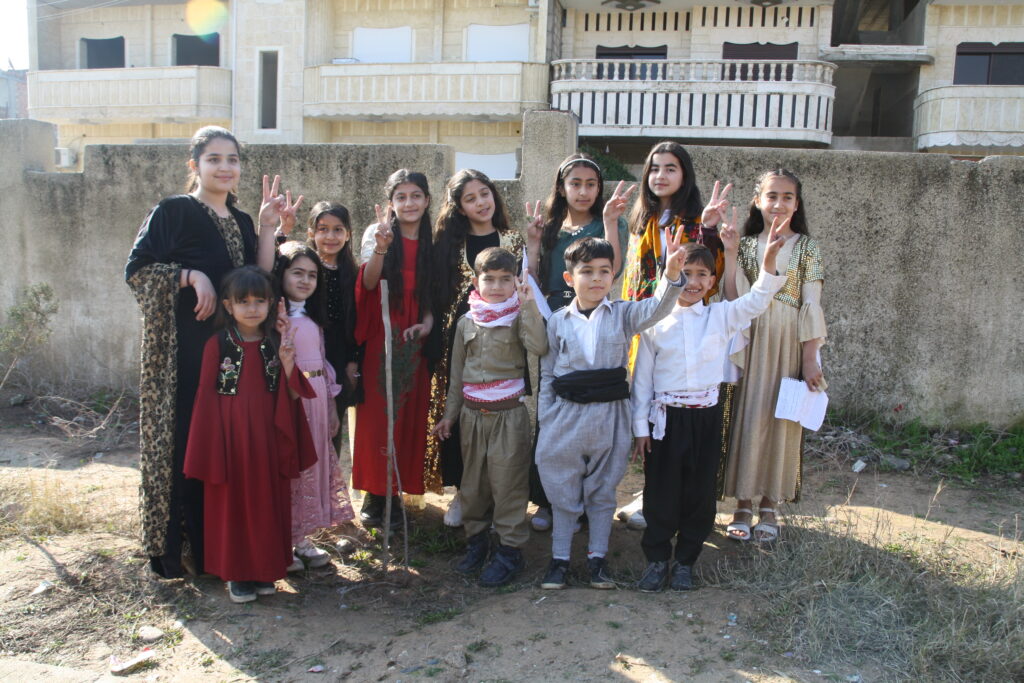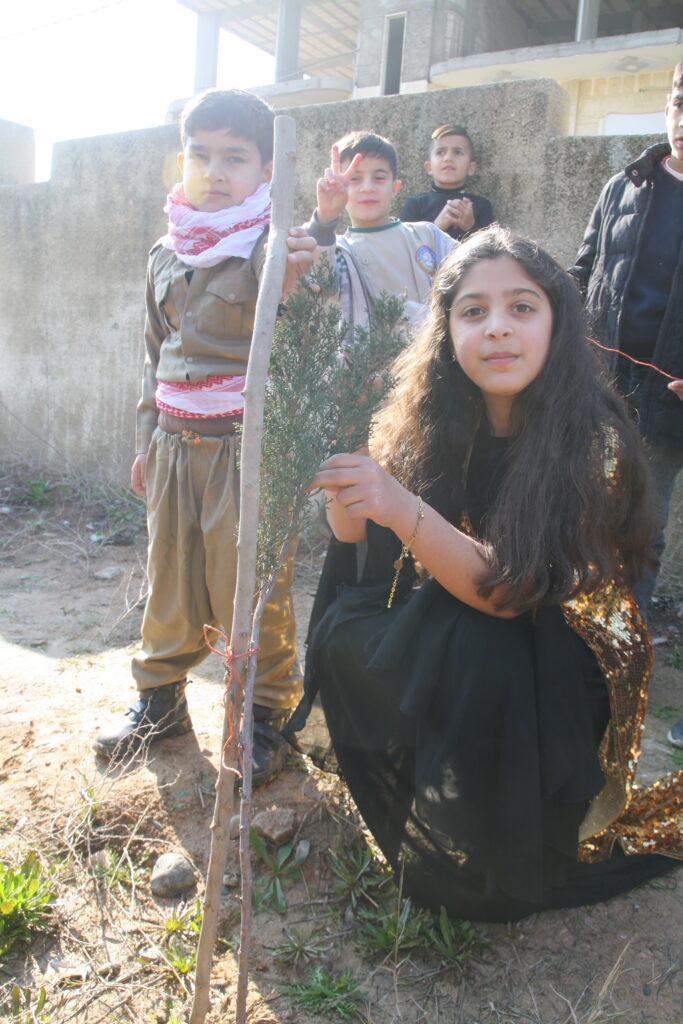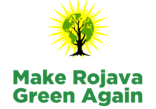On the Mother language day we worked together with the children on the tree project
The spring has arrived in Rojava, the days get warmer again and its greening everywhere. The rain that is falling in winter is the main factor for the growth of the crop during the year. This winter there was quite a lot of rain, which makes everyone looking forward to a good harvest.
Since the days are getting warmer again, we and the children of the Mesrûd Mîrad School also took the opportunity for working on the trees that were planted the last spring. Most of the trees made it through the hot summer, while few also dried out.
Together, we straightened the bent trees with sticks and we cleaned the school yard. A work that might take hours when you are doing it on your own but when 100 children are doing it, it’s done within minutes.
The day we went to the school was a special day for all the children. It was the Day of the Mother Tongue which has, after decades of prescription and assimilation of language, an important meaning here in Rojava. The Kurdish language was banned by the Baath regime. Talking Kurdish was forbidden. Arabic was the only language allowed to use in schools and universities. Some families secretly taught their children how to write and read in their mother tongue. Only after the revolution, the Kurdish language became part of the education system and a way of official communication in institutions of the self-administration. With this mindset more importance was also given to the other languages spoken in the region, like Arabic or Assyrian.
For decades Kurdish children would have to hide in barns and backrooms to sing songs in their mother tongue, play, theater about the kurdish tales and stories, to not be caught by the Syrian regime forces. Everything representing kurdish culture was banned from the public life. Instead, the children were educated in Arabic, got rewarded for speaking and writing good arabic. The same approach was shown for kurdish traditional clothes, they were proclaimed as backward.
Just as the regime forbids all parts of Kurdish culture, they forbid the planting of trees and any other plants. The plan was to build up monocultures, to only plant wheat and wool in Rojava. For the regime Rojava, it’s nature and it’s people were only an object of exploitation.
On the day of the mother tongue a lot of children also came in their traditional clothes to school, the girl in their “Fistan” (The Kurdish traditional dress) and the boys in “şal û şapik” (The traditional wide trousers and shirt, tied together with a “şutik” around the waist). Again, something that has been looked down upon as backward under the Syrian regime. When the children of Dêrik today sing songs or read poems in Kurdish. It might not seem as something huge, but thinking about a the time of oppression and denial in all parts of Kurdistan, this is a historic step, for the Kurdish people as well as for the region. The democratic confederalist system that is being built up in Rojava is in the first place an answer to this history of denial. While in most of the countries in the region some identities and language are oppressed and only one nationality is being favored, the self-administration works for ending this. Neither should Arabs or Assyrians be favored over Kurds, nor the other way around.
There is a Kurdish saying that goes “Her dar li ser koka xwe şîn dibe.”, which means literally “Every tree blossoms on it’s own roots” and can be understood in the sense of that people can live and grow the best on their own land, the land of their ancestors, and not where they have been pushed to flee to because of economic and cultural oppression and persecution. The people of Rojava are slowly, but steady building up structures, institutions as well as ecosystems that allow them, after years of colonialism, to live and work on their own land. The Arabic, Kurdish and Assyrian people of the region are now able to live together in peace on their land and slowly building up what has been destroyed by the regime or were never allowed to exist: The trees that have been cut down or dried out under the monoculture politics of the Syrian regime are going to be replanted, and the culture and language of the people of the region are given space to evolve and flourish. Reforestation as well as education in the mother tongue is both essential parts of this project that complete each other.
